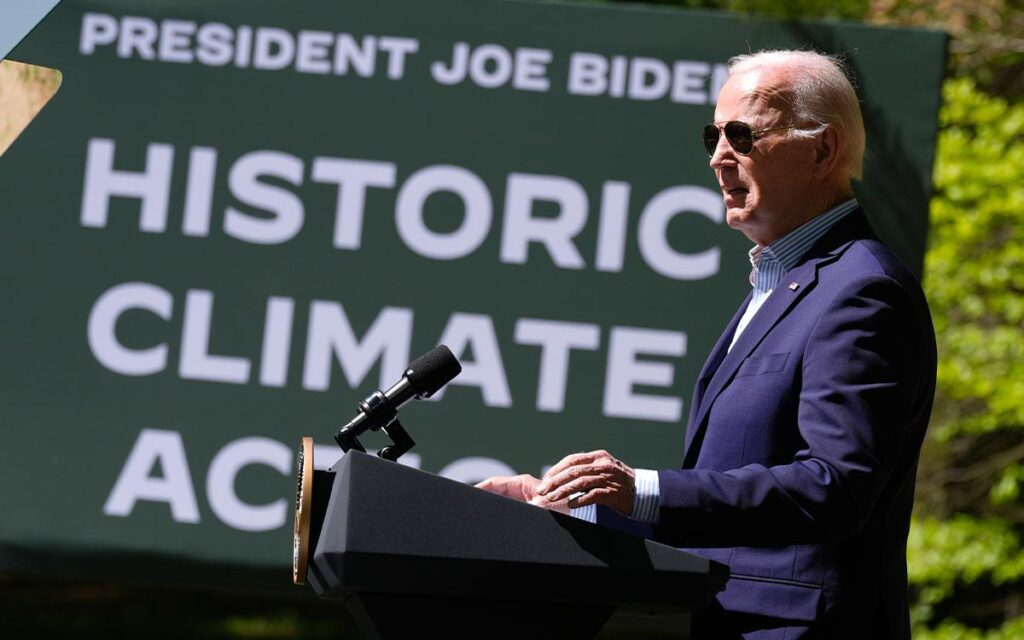Three Areas for Presidential Action Before Leaving Office

President Joe Biden speaks in Virginia on Earth Day 2024. | Photo by Manuel Balce Ceneta/AP
Editor’s Note: This article has been updated since its original publication.
The Biden-Harris administration is entering its final months with opportunities to strengthen its environmental legacy. As Congress reconvenes on November 12, the administration should collaborate with lawmakers to make significant advancements in climate policy.
Firstly, the administration must continue its historic efforts to combat the climate crisis by reducing reliance on fossil fuels. Landmark legislations like the Inflation Reduction Act and the Bipartisan Infrastructure Law have been pivotal in addressing climate change, boosting American jobs, and positioning the US as a leader in the emerging economy. Continued investment in clean energy and manufacturing is vital, alongside halting policies that promote fossil fuel expansion.
Two immediate actions can help mitigate fossil fuel-driven climate change. One is halting the development of large-scale liquefied natural gas (LNG) export terminals, such as the proposed CP2 facility in Louisiana. Expanding LNG infrastructure risks locking the US into an unsustainable fossil fuel future, with extraction and export posing public health threats and potentially increasing domestic energy costs by $14.3 billion annually, according to Public Citizen. The Biden administration should reject these expansions and the CP2 project.
Another crucial action is opposing the Energy Permitting Reform Act of 2024, proposed by Senators Joe Manchin and John Barrasso. This bill threatens to undermine environmental laws, endanger public health, and expedite LNG project reviews, moving in the wrong direction.
Secondly, the Biden-Harris administration should enhance its leadership in public land protection. The America the Beautiful initiative aims to conserve 30% of US lands and waters by 2030. The administration could make significant strides by using the Antiquities Act to establish new national monuments, building on its record of protecting over 12.5 million acres in 2023. Potential sites include the Sáttítla highlands in Northern California, the Chuckwalla National Monument in California’s desert, and the historical site of the Tulsa Race Massacre.
Lastly, the administration should work with Congress to expand outdoor access for all Americans by passing the EXPLORE Act. This bipartisan bill, featuring the Outdoors for All Act and expanding the Every Kid Outdoors program, aims to make national parks and public lands more accessible, helping close the nature equity gap.
President Biden deserves recognition for prioritizing climate action, pollution reduction, and land conservation. With 10 weeks remaining, there is an opportunity for bold action to further these initiatives.
federal climate policy,
climate change,
public lands
Original Story at www.sierraclub.org
